Intermarkets' Privacy Policy
Donate to Ace of Spades HQ!
aceofspadeshq at gee mail.com
Buck:
buck.throckmorton at protonmail.com
CBD:
cbd at cutjibnewsletter.com
joe mannix:
mannix2024 at proton.me
MisHum:
petmorons at gee mail.com
J.J. Sefton:
sefton at cutjibnewsletter.com
First World Problems...
A Resounding And Powerful Defense Of Liberal Democracy, Market Economies, And Unabashed Nationalism And Patriotism
Book Thread: [Sabrina Chase]
Daily Tech News 15 February 2026
Saturday Night Club ONT - February 14, 2026 [2 D's]
Saturday Evening Movie Thread - 2/14/2026
Hobby Thread - February 14, 2026 [TRex]
Ace of Spades Pet Thread, Valentine's Day
Gardening, Home and Nature Thread, Holiday Weekend
Jim Sunk New Dawn 2025
Jewells45 2025
Bandersnatch 2024
GnuBreed 2024
Captain Hate 2023
moon_over_vermont 2023
westminsterdogshow 2023
Ann Wilson(Empire1) 2022
Dave In Texas 2022
Jesse in D.C. 2022
OregonMuse 2022
redc1c4 2021
Tami 2021
Chavez the Hugo 2020
Ibguy 2020
Rickl 2019
Joffen 2014
maildrop62 at proton dot me
Saturday Evening Movie Thread 04-27-2019 [Hosted By: TheJamesMadison]
Important Films
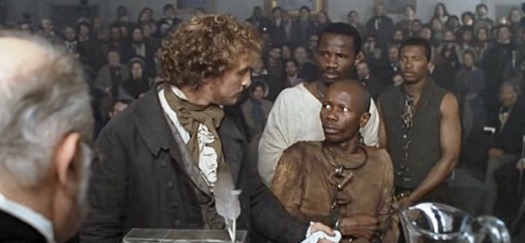
As far as I can tell, there are two kinds of important films.
The first are topically important films. These are movies that touch on contemporary issues and are mean to affect the collective consciousness of the audience.
The second are historically important films. These are movies that have gained renown for something about their production or storytelling that can mark a change in larger trends, or has made a large cultural impact to the world of films.
Like any other type or category of storytelling, there are ranges of quality within each, but I find the first to age poorly fast. The flip side is that the latter films aren't always actually good.
Topically Important Films
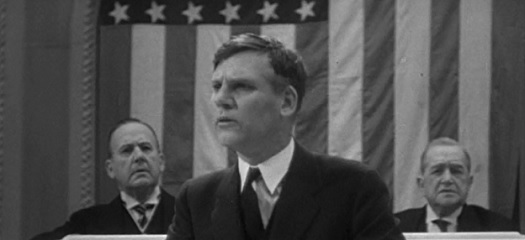
Movies about contemporary issues never really age well, but the degradation of quality of these movies seems to have gone off a cliff over the last twenty years. There's a greater concern for preaching on a topic than on telling a story, which ages these films really badly.
Lions for Lambs, Redacted, Rendition, and In the Valley of Elah are all movies that Hollywood produced about the second Iraq War and nothing else. There's little in these movies other than the message itself. Characters don't feel real. Situations are so ripped from the headlines that they end up feeling like recitations rather than stories. These movies aren't designed to tell stories or to entertain, but to preach, and they disappear into the ether extremely quickly. They are designed to disappear.
A great example of an "important" movie that has aged horrendously is a small film called Gabriel over the White House. Filmed during the Great Depression, it's William Randolph Hearst's fantasy of a government strong enough to do the right thing and fix the economy for once. It's also a fascist fantasy, quite literally so. The president is milquetoast, gets into a car crash, wakes up as a go-getter to fix the nation. He then runs roughshod over every American institution to institute solutions for America which, obviously, work gangbusters. All we needed, according to this movie was a fascist dictator. It really hasn't aged well at all.
There can be a balance between the two impulses, though. A topically important movie is Guess Who's Coming to Dinner. It's not great, but it's well told and has real characters in it, which has allowed it to stand the test of time better than some of its contemporaries.
Topically important films also tend to shut down critical thinking elements of people who walk in agreeing about the point of the film. BlackKklansman is a good recent example of this. The movie's honestly not very good. It's distracted, unfocused, and stops its story to preach a few times. It's not worthless, being quite funny at times, but it's rather massively broken as a film. That didn't stop people who agreed that America is a racist nation from falling all over themselves in praising the movie because it said the right things.
A Transition
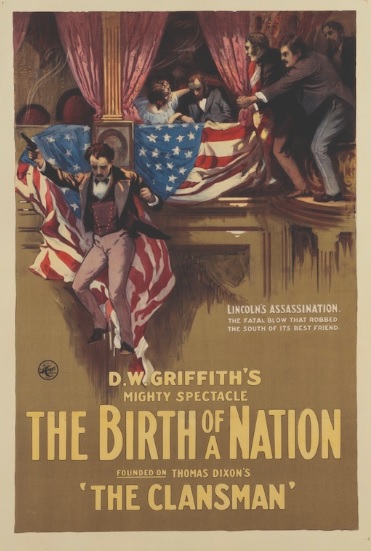
To move from topically important films to historically important films, I want to talk briefly about a movie that fits both: The Birth of a Nation.
The Birth of a Nation is one of those movies that everyone has opinions about but no one actually watches. Well, I have watched it, and it's great entertainment. It was the culmination of every technical and narrative lesson of the silent era wrapped up in an exciting 3-hour package about Civil War and Reconstruction. It's also deeply, deeply racist.
I recently watched BlackKklansman, Spike Lee's new movie about the black cop in Colorado who infiltrates the Ku Klux Klan. When I had finished, I searched out Armond White's review. He's always an interesting voice, especially when the movie he's talking about has a racial component. White gets incensed when filmmakers misuse The Birth of a Nation, which, according to White, Lee does. So, I searched out some of his writings about the silent epic, and I was surprised to find that I had a similar experience to the movie's racism that he viewed from some modern black students.
We both found the racism to be hilarious.
The racism in the movie is so over the top that it feels like a Key and Peele sketch instead of an earnest attempt to convince the audience that black people are lazy rapists (which the movie was, earnest). The modern reaction that I shared with the described students indicates an odd place where The Birth of a Nation now resides. It's topical important has become a punch line, but it's historical importance is rather undeniable. D.W. Griffith was a master storyteller and filmmaker, and he made a piece of art out of the film.
Historically Important Films
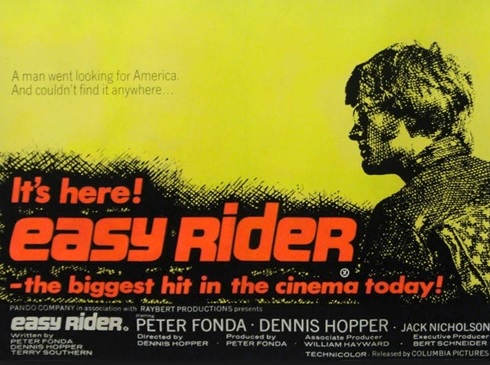
The history of cinema is not about 120 years old. There have been landmark films throughout that period ranging from The Birth of a Nation to Toy Story for different reasons. But, those landmarks aren't always the greatest films. The Birth of a Nation obviously has its problems, but its historical importance is for the technical achievements as much as anything else. However, it's not always technical merits that get a movie to become important to telling the history of cinema.
Easy Rider is vitally important to telling the story of American movies through the 60s and 70s. It showed Hollywood in dramatic fashion that there was a huge market to appeal to and a model of production that lent itself to easier profits than Biblical epics, which had dominated American production the previous decade. They could give a few hundred thousand dollars to an "auteur" who would then produce something that those crazy college kids would eat up in massive numbers.
Does it matter that Easy Rider is barely a movie? In terms of its artistic quality, it's mostly a curio and not something to be admired on its merits. However, it is important to film history. If you want to tell the history of American filmmaking, you have to dedicate a chapter to Easy Rider because of its influence on film production.
A further example may be helpful. I've said it before, but Orson Welles' best movie is Chimes at Midnight, his telling of the Fallstaff story. However, Chimes at Midnight is decidedly not his most important movie. That's unquestionably Citizen Kane.
Where The Birth of a Nation was a distillation and culmination of every technical and narrative lesson of the silent era, Citizen Kane is the same with lessons of the early sound era.
Steven Spielberg and 1993
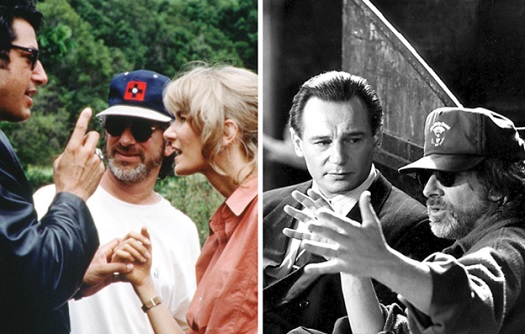
1993 was a great year for Steven Spielberg. He released two films that year, one of his best, and one of his most enduring culturally. They were Schindler's List and Jurassic Park, and I think it's a perfect distillation of the two different types of important films.
Schindler's List was a topically important film. It's a stark portrait of the Holocaust that pulls the audience in and won't let go. Spielberg knew exactly what he was doing with that film. His idea to strip the movie of everything beautiful, including color, made the movie even more beautiful to look at. The unflinching view of the processes implemented in Nazi Germany are evocative. Many people complain about the ending, insisting that the Holocaust shouldn't have anything close to an upbeat ending, but considering the focus of the story is on one man who helped saved lives, I think it's appropriate.
Jurassic Park, even at the time, was a historically important film. The movie represented a shift in technology that everyone saw coming a mile away. Spielberg, one of the most powerful creative men in Hollywood, was throwing his weight behind the new technology of Computer Generated Effects on a scale that no one had attempted before. He led the creation of dinosaurs purely from computers. He had toyed with some advanced stop-motion techniques, but ultimately gambled on the 1's and 0's of a computer, and changed filmmaking forever. The change was certainly inevitable, but Spielberg's Jurassic Park is the first major motion picture that actually took that leap at that scale to those results.
Steven Spielberg Now
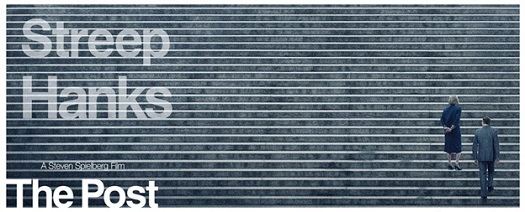
Spielberg's done similar things in a few other years. 1989 saw both Always and Indiana Jones and the Last Crusade. 1997 saw both Amistad and The Lost World: Jurassic Park. 2002 saw both Catch Me if You Can and Minority Report. 2005 saw both Munich and War of the Worlds. 2011 saw both War Horse and The Adventures of Tintin. He's been trying to balance popular filmmaking with "important films" for most of his career, and somewhat ironically, his popular films have, on average, had a more lasting impact. Who watches Amistad anymore? Or War Horse? Or Always? The nakedly popular ones seem to have lasted longer like Minority Report, the Indiana Jones movies, and Jurassic Park.
He did this again in 2017-2018 when he released The Post and Ready Player One.
The Post
So, I finally checked this out, and it's not bad, but it's…weird from a storytelling perspective. The hoopla around the Pentagon Papers is really the story of The New York Times getting its source, verifying everything, and then fighting the Nixon administration on the stories. And yet, the movie focused on…The Washington Post. They're an also ran in the story, even as the story is told within the film itself. They're playing catchup from beginning to end, and only end up as supporting players in the court fight to the New York Times.
The script was written early in 2016, at a time when everyone believed that Hillary Clinton was going to win the presidency. With that in mind, it becomes easy to see why the focus fell where it did. Katherine Graham, the female publisher of The Washington Post, played a small part in a large power play in Washington D.C. The movie was meant as a thinly veiled ode to the rise in power of Hillary Clinton, another woman.
When Spielberg was on the rounds for Oscar talk, he ended up playing up a different connection to current events. He took the movie into production after Clinton lost the election, but without changing the script. He talked about the fight for the Pentagon Papers was reflective of the fight against the new Republican president, but the story doesn't actually fit the analogy particularly well. Spielberg took a topical story that was meant to go one way, twisted it to go another post-hoc, and ended up creating something kind of confusing in terms of point and theme. It's a Spielberg production, so it looks good, moves well, and is well acted, but the overall portrait is, well, weird.
In Summation
When someone tells me that a movie is important, they're usually saying that the movie agrees with them about something. Politics, religion, social issues, whatever. I instantly shut down any interest, because so many of these movies are less concerned with entertaining me than preaching to me.
I remember an interaction where I called The Stoning of Soraya M good, but not great. I was lambasted by a few people, because didn't I see that it was telling truth? Well, maybe it was, but I had problems with how the movie was built, how the story was told. I don't care about the movie's opinions about the world, but I do care about how it involves me in the story. If I need something from outside the movie to "get" it, like a point of view, for instance, I'm going to miss something, even if I already share it. The movie needs to be all encompassing in what it presents.
Historically important films are far more interesting to me, even when the movies themselves aren't great. Understanding the context around the film can certainly help (especially in the case of something like Easy Rider), but many, if not most, of these films are well told stories to begin with. I feel like greater context is actually not that necessary because it's so easy to watch Citizen Kane without the context of its importance to the early sound era and still see a marvelously told story.
Ultimately, I want my filmmakers like Spielberg to focus on entertaining me rather than telling me what to think. No one's going to care about the latter, and the former will stand the test of time more readily.
Oh, and Avengers came out yesterday. Talk about that, I guess.
Movies of Today
Opening in Theaters:
Avengers: Endgame
Next in my Netflix Queue:
Senso
Movies I Saw This Fortnight:
Borgman (Netflix Rating 4/5 | Quality Rating 3/4) Full Review Poster blurb: "It's a fascinating movie that requires some unpacking from the audience, but that's part of the fun." [Amazon Prime]
The Man Who Killed Don Quixote (Netflix Rating 5/5 | Quality Rating 3.5/4) Full Review "I thought it was his best movie since Twelve Monkeys." [Theater]
Jupiter Ascending (Netflix Rating 1/5 | Quality Rating 0.5/4) Full Review "The idea that some independent producer with a lot of money read the screenplay and said, 'Sure, I'll give you $175 million for this' is mind-boggling. Where is this person? I have much better ways they can spend that kind of money." ["Library"]
Through a Glass Darkly (Netflix Rating 5/5 | Quality Rating 4/4) Full Review "I see Through the Glass Darkly and Alien in a similar light. They both begin in the mundane and end with a tour de force that shakes the audience in different ways. I loved it thoroughly." [Personal Collection]
Jean de Florette (Netflix Rating 5/5 | Quality Rating 3.5/4) Full Review "It's involving and incredibly well structured." ["Library"]
The Passion of Anna (Netflix Rating 5/5 | Quality Rating 4/4) Full Review "Bergman uses all of his skill to tell this intellectual story intimately and on very human terms." [Personal Collection]
Paisan (Netflix Rating 5/5 | Quality Rating 4/4) Full Review "There's a reason I love the Italian neo-realist movement, and it's highlighted extremely well by the movement's father, Roberto Rossellini in his War Trilogy." [Netflix DVD]
Spider-Man: Into the Spider-verse (Netflix Rating 4/5 | Quality Rating 3/4) Full Review "The central story (a modestly well done hero journey wrapped up in fancy clothes) is handled well, and Miles is a great central character." [Personal Collection]
Contact
Email any suggestions or questions to thejamesmadison.aos at symbol gmail dot com.
Follow me on Twitter.
I've also archived all the old posts here, by request. I'll add new posts a week after they originally post at the HQ.
weft cut-loop[/i][/b] [/s]: "[i]I have found the rice in the rice machine is ki ..."
Nova Local: "14 Ummm, why are you reheating it? Trying to get 2 ..."
Blonde Morticia: " Those Costco Rotisserie Chickens are a wonder. ..."
Maj. Healey [/i]: "I love a good meatloaf sandwich. Sliced, fried in ..."
Aetius451AD work phone: "I have found the rice in the rice machine is kind ..."
Skip: "My grill, if it wasn't out on the deck and winter ..."
weft cut-loop[/i][/b] [/s]: "[i]I have an instant pot my mom gave me. I am sure ..."
LCMS Rulz!: "Thank you, SoS Rubio, for this clear statement. Bu ..."
Piper: "I have a Roli Roti half chicken I am going to rehe ..."
Aetius451AD work phone: "Hmmmm. 225 for an hour. Might have to try that. ..."
Kratwurst: "That's a great looking steak. I rarely use a pan ..."
First World Problems...
A Resounding And Powerful Defense Of Liberal Democracy, Market Economies, And Unabashed Nationalism And Patriotism
Book Thread: [Sabrina Chase]
Daily Tech News 15 February 2026
Saturday Night Club ONT - February 14, 2026 [2 D's]
Saturday Evening Movie Thread - 2/14/2026
Hobby Thread - February 14, 2026 [TRex]
Ace of Spades Pet Thread, Valentine's Day
Gardening, Home and Nature Thread, Holiday Weekend
Paul Anka Haiku Contest Announcement
Integrity SAT's: Entrance Exam for Paul Anka's Band
AllahPundit's Paul Anka 45's Collection
AnkaPundit: Paul Anka Takes Over the Site for a Weekend (Continues through to Monday's postings)
George Bush Slices Don Rumsfeld Like an F*ckin' Hammer
Democratic Forays into Erotica
New Shows On Gore's DNC/MTV Network
Nicknames for Potatoes, By People Who Really Hate Potatoes
Star Wars Euphemisms for Self-Abuse
Signs You're at an Iraqi "Wedding Party"
Signs Your Clown Has Gone Bad
Signs That You, Geroge Michael, Should Probably Just Give It Up
Signs of Hip-Hop Influence on John Kerry
NYT Headlines Spinning Bush's Jobs Boom
Things People Are More Likely to Say Than "Did You Hear What Al Franken Said Yesterday?"
Signs that Paul Krugman Has Lost His Frickin' Mind
All-Time Best NBA Players, According to Senator Robert Byrd
Other Bad Things About the Jews, According to the Koran
Signs That David Letterman Just Doesn't Care Anymore
Examples of Bob Kerrey's Insufferable Racial Jackassery
Signs Andy Rooney Is Going Senile
Other Judgments Dick Clarke Made About Condi Rice Based on Her Appearance
Collective Names for Groups of People
John Kerry's Other Vietnam Super-Pets
Cool Things About the XM8 Assault Rifle
Media-Approved Facts About the Democrat Spy
Changes to Make Christianity More "Inclusive"
Secret John Kerry Senatorial Accomplishments
John Edwards Campaign Excuses
John Kerry Pick-Up Lines
Changes Liberal Senator George Michell Will Make at Disney
Torments in Dog-Hell
The Ace of Spades HQ Sex-for-Money Skankathon
A D&D Guide to the Democratic Candidates
Margaret Cho: Just Not Funny
More Margaret Cho Abuse
Margaret Cho: Still Not Funny
Iraqi Prisoner Claims He Was Raped... By Woman
Wonkette Announces "Morning Zoo" Format
John Kerry's "Plan" Causes Surrender of Moqtada al-Sadr's Militia
World Muslim Leaders Apologize for Nick Berg's Beheading
Michael Moore Goes on Lunchtime Manhattan Death-Spree
Milestone: Oliver Willis Posts 400th "Fake News Article" Referencing Britney Spears
Liberal Economists Rue a "New Decade of Greed"
Artificial Insouciance: Maureen Dowd's Word Processor Revolts Against Her Numbing Imbecility
Intelligence Officials Eye Blogs for Tips
They Done Found Us Out, Cletus: Intrepid Internet Detective Figures Out Our Master Plan
Shock: Josh Marshall Almost Mentions Sarin Discovery in Iraq
Leather-Clad Biker Freaks Terrorize Australian Town
When Clinton Was President, Torture Was Cool
What Wonkette Means When She Explains What Tina Brown Means
Wonkette's Stand-Up Act
Wankette HQ Gay-Rumors Du Jour
Here's What's Bugging Me: Goose and Slider
My Own Micah Wright Style Confession of Dishonesty
Outraged "Conservatives" React to the FMA
An On-Line Impression of Dennis Miller Having Sex with a Kodiak Bear
The Story the Rightwing Media Refuses to Report!
Our Lunch with David "Glengarry Glen Ross" Mamet
The House of Love: Paul Krugman
A Michael Moore Mystery (TM)
The Dowd-O-Matic!
Liberal Consistency and Other Myths
Kepler's Laws of Liberal Media Bias
John Kerry-- The Splunge! Candidate
"Divisive" Politics & "Attacks on Patriotism" (very long)
The Donkey ("The Raven" parody)

